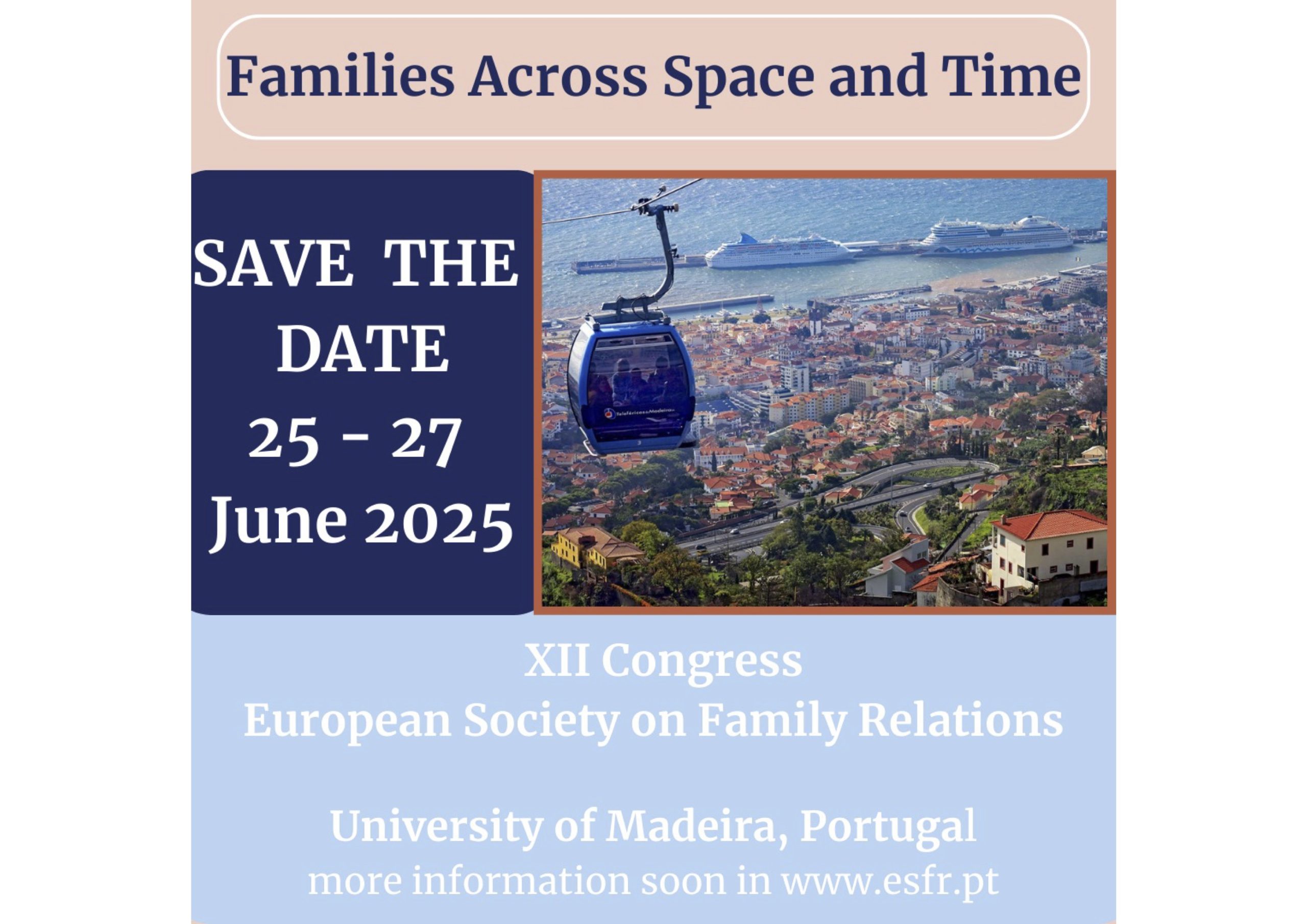Article 1. Name
The name of the society will be European Society on Family Relations (ESFR).
Article 2. Mission
The European Society on Family Relations (ESFR) represents a multidisciplinary, nonprofit organization of family researchers. The Society aims to promote excellence in the scientific study of family relations in context by bringing together European family researchers.
ESFR is devoted to the advancement of theoretical and empirically-oriented research at both the basic and applied levels. In addition, ESFR aims at fostering excellence in the training of family researchers at the institutional and individual levels.
ESFR encourages scientific cooperation between family scientists from European countries and provides a forum for the international exchange of scientific knowledge concerning the family including dissemination of the current state of the art knowledge in the field.
Moreover, it will serve as a platform for expert knowledge concerning family relations including the interface between research and policy on the local, national and international levels. This information will be available for dissemination to individual families, corporate organizations and government agencies.
Article 3. Registration
The association is lawfully registered as a non-profit organization in the chamber of commerce, The Hayere, The Netherlands. It may be transferred to a different situation by decision of the executive board.
Article 4. Membership
4.1 Membership categories. Institutional and individual memberships are available.
4.1.1 Institutional Membership is open to institutions that conduct scientific research on family phenomena. There are three levels of institutional membership.
4.1.1.1 Full Institutional Members: European family research institutes and university departments engaged in family research, which conduct independent research that is not linked to corporate institutions or conducted for marketing goals. It is possible for more research groups or departments from one university to cluster together as one institutional member.
4.1.1.2 Affiliate Institutional Members: family research institutes or university departments that are similar to full institutional members but which are outside Europe.
4.1.1.3 Associate Institutional Members: research institutes focusing on marketing and contract research.
4.1.2 Individual Membership is open for individuals who are engaged in scientific family research. Individual Membership includes:
4.1.2.1 Full Individual Members: individual researchers who conduct research at universities or other research institutes in Europe.
4.1.2.2 Student Members, including PhD students, who study at universities or other research institutes which conduct independent research.
4.1.2.3 Affiliate Individual Members: individual researchers similar to full individual members, but who live outside Europe.
4.1.3 Sponsoring Membership is open to institutes and individuals not involved with family research yet are willing to comply with the aims of Society and to provide support for the Society. The two levels of Sponsoring membership are:
4.1.3.1 Sponsoring Institutional Members: firms, companies, or governmental institutes that do not conduct scientific research.
4.1.3.2 Sponsoring Individual Members: individuals who are outside the scientific community of family researchers.
4.2 Membership Application and Decisions
Applications for membership in the Society will be considered and decided by the executive board. The executive board has the right to accept new members who fulfill the criteria set out in Article 4.1 of the constitution and to reject applications who do not meet the criteria. Applicants will be notified in writing of the decision.
4.3. Voting Rights
Only (1) full individual and (2) full institutional members and (3) student members who are registered in a Ph.D. or equivalent program will have the right to vote.
4.4. Membership Termination
4.4.1. Membership in the association cases through
a. resignation
b. demise
c. non-payment of membership fees (procedure is outlined in the By-laws)
d. ethical violations or other professional misconduct (procedure is outlined in the By-laws)
4.4.2. Membership dues will not be refunded in cases of termination.
Article 5. Executive Board
5.1 The governing body of the Society shall be the Executive Board consisting of the officers including the President-Elect, President, Past President (except for the first two years in which an additional board member will be put into office), Treasurer, and Secretary, four additional regular board members and one student member. The chair of the organizing committee of the upcoming conference will be included as an ad-hoc member of the executive board. Ad-hoc members of the executive board attend board meetings but do not have voting privileges on executive board decisions. All executive board members (except the student member) are to be either full individual members or a representative of an institution. The student member of the executive board must be registered in a Ph.D. or equivalent program. In principle the composition of the executive board should reflect the geographic, linguistic and discipline differences which characterize the membership.
5.2 Term of Office. All board positions will be for a four-year term with the exception of President, President Elect, Past President and Student Member which will each have a two-year term. Thus the Treasurer, Secretary and Regular Board Members shall be elected every four years, with approximately 50% of the Executive Board positions changing in any given year. The only exception to this will be the first term of the President (4 years) and the Treasurer (6 years) and two regular members (2 years) in order to establish 50% rotation of the board biennially. After the first term in office the president automatically becomes the past-president and the president elect becomes president for the next 2 years. Consecutive re-election to the same position of the Executive Board is only possible for one term.
5.3 All aspects of the policy and affairs of the ESFR are the responsibility of the Executive Board. A quorum of the executive board requires a majority of its members. The Executive Board shall make decisions on the basis of a majority of votes of the quorum. In the event of a tie, the President will have the deciding vote. Each board member casts one vote, regardless of membership type.
5.4 The President of the Society will chair the executive board.
Article 6. General Assembly
The General Assembly will consist of all individual members of the society as defined in article 3. In the case of institutional members there is one representative for each institute.
Article 7. Meetings
7.1 General Business Meeting. The Executive Board will call at least one biennial General Business meeting in which the General Assembly is invited to attend. At this meeting the Executive Board will report on activities that have taken place during the last two years, discuss the policy of the society and the plans for the future, and respond to questions raised by the members. Preferably the General Assembly meeting will coincide with the biennial Conference.
7.2 Special Meetings. A Special Meeting shall be held when asked for by the Executive Board or when asked for by one fifth of the ESFR members. Time and place of the special meetings will be determined by the Executive Board and will be announced 30 days in advance. These meetings may be either open to the General Assembly or to full voting members only.
Article 8. Voting
For purposes of voting in the general assembly and for election of board members each full individual member will have one vote and each full institutional member will have three votes (cast by one representative). For executive board decisions, each board member will have one vote.
Article 9. Committees
9.1 Scientific Committee. The Scientific Committee shall be responsible for the scientific standards of publications, conferences and the like issued or organised by the Society. The Scientific Committee consists of European family researchers of excellence, elected by the Executive Board.
9.2 Special Ad Hoc committees will be assembled on an as-needed basis.
Article 10. Conferences
The Executive Board shall organise biennial conferences at a place and time that it deems appropriate. To this means the Executive Board will call upon the Scientific Committee to guarantee the scientific quality of the conference and a special Local Organising Committee for the conference will also be designated.
Article 11. Official Publications
The Society shall issue regular or occasional publications as it deems necessary. These shall be approved by both the executive board and the scientific committee.
Article 12. Financial Year and Year of the Association
12.1 The financial year and the year of the society are the same as the calendar year.
Article 13. Amendments to the Constitution
13.1 Amendments to this constitution may be made by a two-third affirmative vote of those voting in a referendum submitted by mail to the voting members of the society.
13.2 Amendments may be proposed by majority vote of the executive board or by petition of at least one-third of the voting members of the society.
13.3 All proposed amendments to the by-laws shall be transmitted to the electorate at least 30 days prior to the vote on the amendment.
Article 14. Finances and Budget
14.1 The funds of the society, including all donations, membership fees, contributions and bequests shall be paid into an account operated be the council in the European Society on Family Relations at a financial institution of the executive board’s choosing. All financial transactions involving fund disbursement must be signed by at least two Executive Board members.
14.2 The society will comply with their obligations under the Dutch law concerning the keeping account of all financial activities including an annual statement of account and the independent auditing of the statement of accounts.
Article 15. Property
15.1 Property of the association includes all financial and physical assets.
Article 16. Dissolution
The society can be dissolved as a result of a decision to do so following a special meeting of the General Assembly. At the same time as the decision to dissolve the Society, arrangement for disposing any credit balance must be agreed by at least two thirds of the General Assembly.


